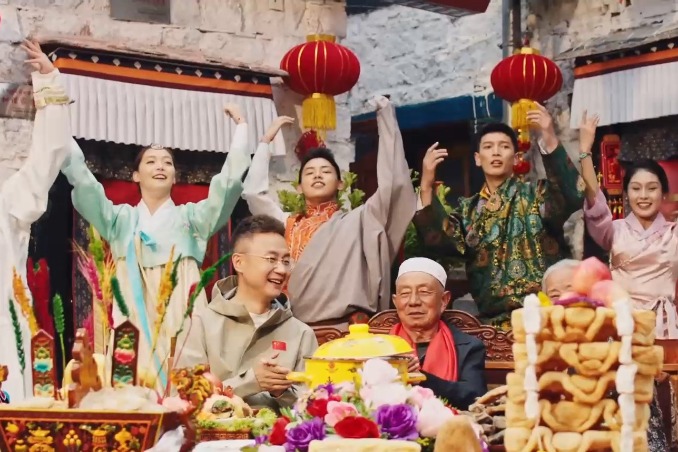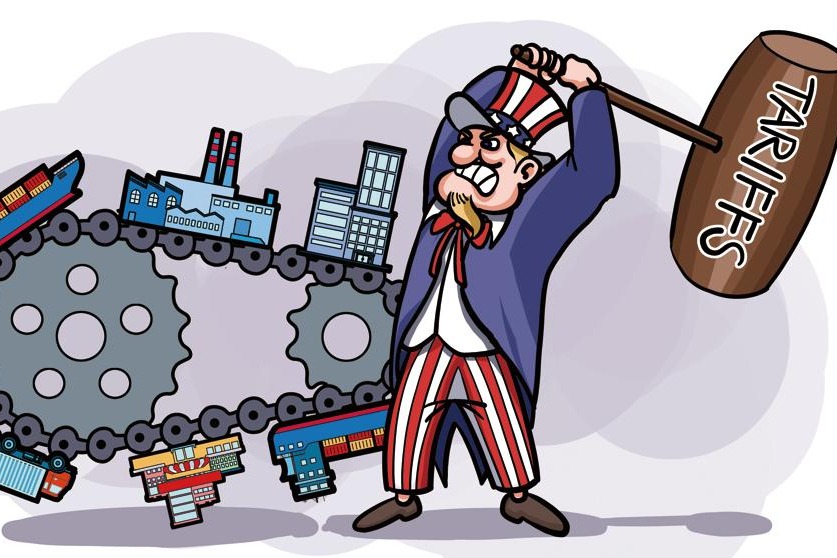Rural cultural programs need to be redesigned

The sound of music broke the quietness in the village one evening, prompting my wife and me to walk to the community square to find the source of the soulful music. A big van was parked just before the village square, around which a dozen or so people were getting ready for a show. On both sides of the van were printed some Chinese characters, which in English roughly mean: "Spreading culture to rural areas".
Following one of the hosts' brief introduction, the show began on a platform against the backdrop of the setting sun. The performances included dancing, singing, a model show, rap, and playing musical instruments. With villagers gradually joining, the audience at its peak included about 100 villagers.
"We've been organizing such cultural events for many years, and every year we visit villages to entertain villagers," said Liu Wei, deputy director of the mass culture center of Fuyuan, a border city in Heilongjiang province. The city of Fuyuan is about 50 kilometers away from our fishing village called Zhuaji, which, being China's easternmost village in Heilongjiang, is cool in summer. My wife and I have been living in the village to escape the heat and noise of the capital.
The event was part of the country's efforts to better meet rural people's cultural, scientific and technological, and healthcare needs. Since 1996, the central authorities have been dispatching performers, university students and doctors to rural areas to promote rural development, which has earned the event the name sansong, or sending culture, science and health to the rural areas.
Rural residents enjoy the high-standard performances in the village, or read in village libraries stocked with donated books and computers. Students and their teachers visit the villages during their vacation, bringing with them scientific and technological know-how, and doctors frequently travel to villages to provide free on-the-spot diagnosis or medical checkups.
The number of people and volunteers involved in such activities is hard to calculate, though we know that every province, city and county government is obligated to send performers to rural areas several times a year. In fact, one university alone could organize a few thousand students to help farmers.
Governments at different levels support the sansong program by providing transportation and some equipment for the volunteers. According to Liu Wei, the performers "don't care about money. They feel honored to get the chance to entertain villagers. It's their enthusiasm that has kept us going".
Despite the performers' enthusiasm, the fact that most of them are "retired" amateur artists means their performances are not up to the expectations of rural residents. When the first groups of performers were dispatched to villages nearly 30 years ago, they were much better received by the villagers, because TV was not yet popular among rural households and people were thirsty for entertainment. But things have changed because of not only TV channels but also smartphones and social media.
In some less-developed areas, the lack of financial support has either led to complete abandonment of the sansong program or drastically reduced the number of activities. To keep the program going, some troupes are now selling advertisements and luring audiences to buy what they promote on the stage, which goes against the original intention of the sansong program.
Nearly three decades after it started, the sansong program's achievements and failures should be thoroughly analyzed, and loopholes plugged.
Perhaps, it's time to redesign cultural activities both in form and content to meet the rising requirements of villagers. Emphasis should be laid on the message a performance sends, not on formalism. Also, enough funds should be allocated to make the sansong program more attractive and thought-provoking. Commercial and industrial enterprises' sponsorship should be allowed, but only after due analysis. The idea should be to ensure sufficient financial support but on condition that the sponsors do not meddle with the performances or the message they convey.
It was completely dark when the performers in Zhuaji village loaded their lights and acoustic equipment on their van. As they began to drive into the darkness, my wife and I joined the villagers to bid farewell to them, by saying "welcome back again".
The author is former deputy editor-in-chief of China Daily.


































